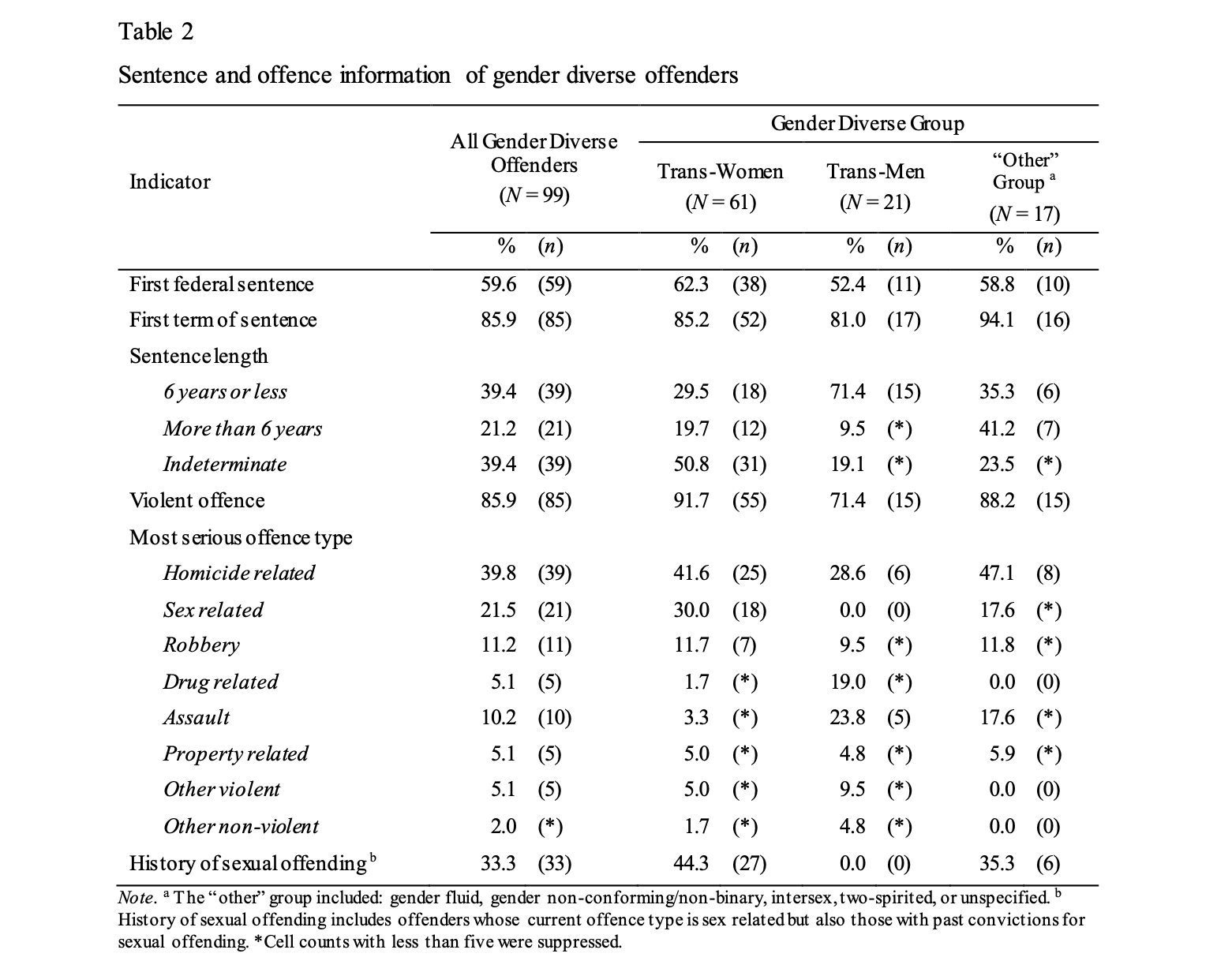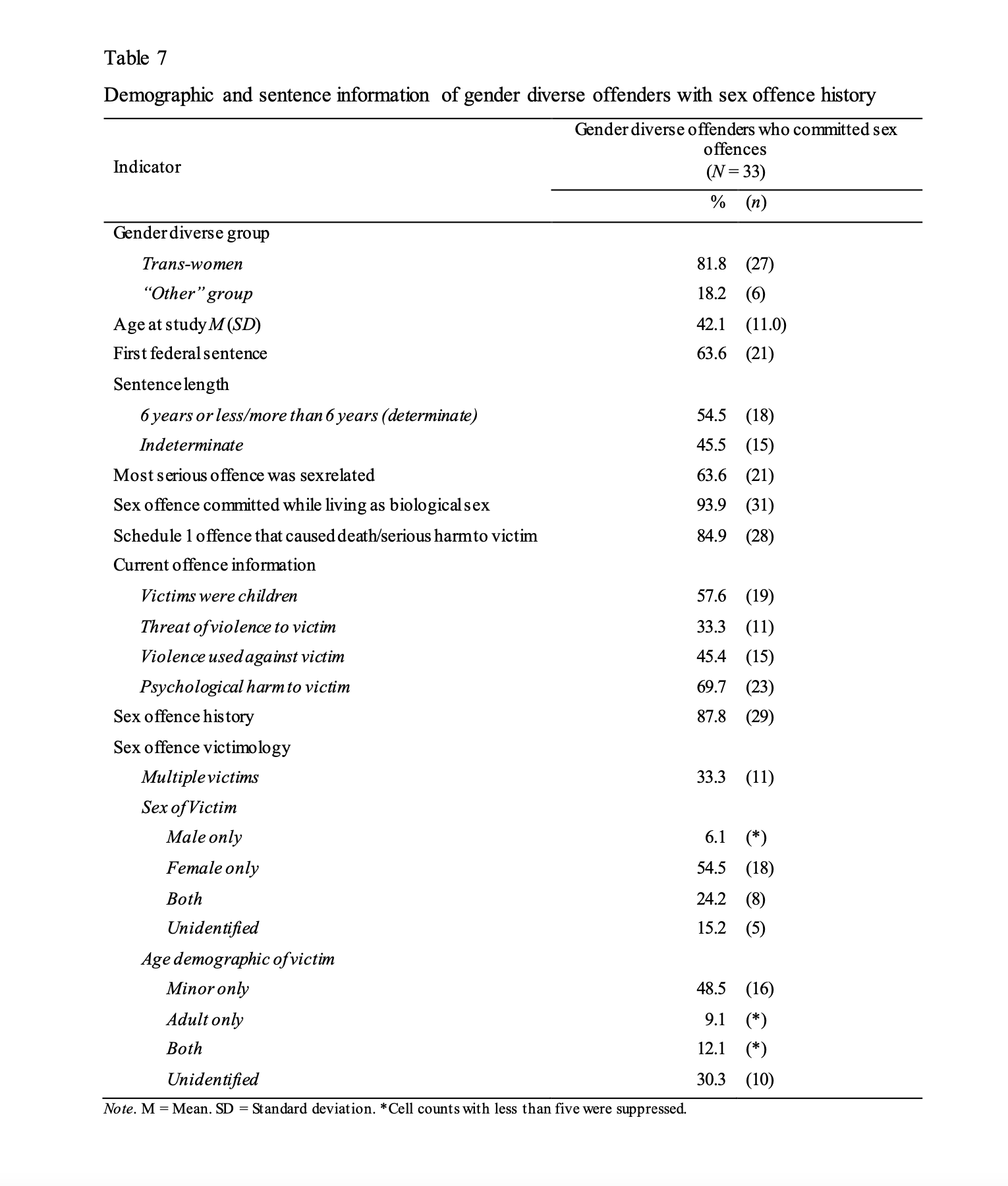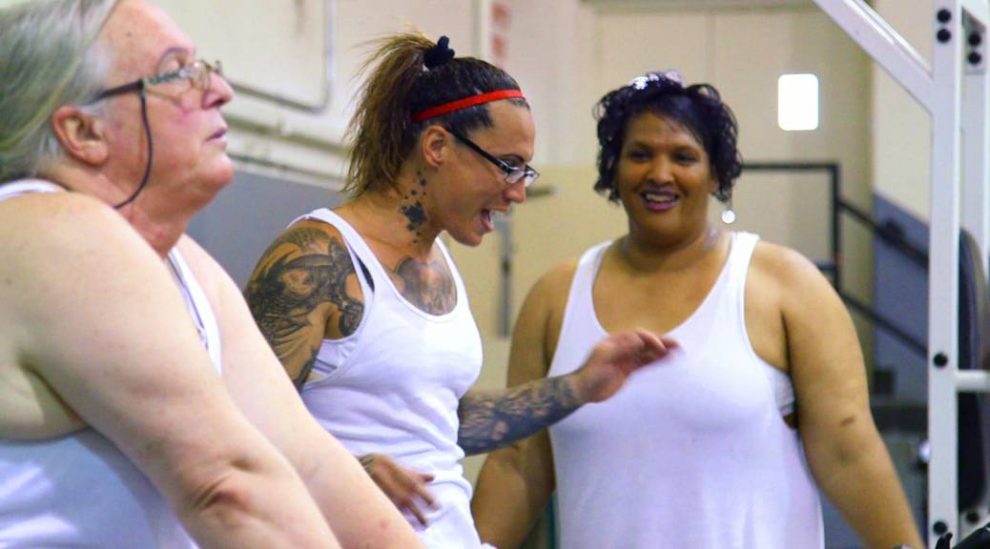A new Canadian study found that 9 in 10 male inmates who identify as transgender were incarcerated for violent offenses and nearly half were sexual offenders.
A recent study conducted by the Correctional Service of Canada (CSC), an “Examination of Gender Diverse Offenders,” which surveyed 99 “gender diverse” inmates between 2017 and 2020, found that of the 61 male inmates in the study who identified as transgender or something other than male, 46% had committed sexual offenses and 92% were incarcerated for violent crimes.
The report found that 91.7% of male inmates who identified as transgender women surveyed were incarcerated for a violent offense, including 41.6% for homicide. By contrast, according to the Correctional Service of Canada’s 2021 annual report, 25.8% of male inmates (who identify as male) were serving sentences for a violent offense, which includes homicide/manslaughter, attempted murder, aggravated assault, and other violent offenses.
Additionally, the researchers determined that 62.7% of male inmates who identified as transgender women had a low reintegration potential, 39.3% required maximum security, and 74.6% had “high static risk,” which refers to a high level of risk that an individual will reoffend based on factors that are relatively unchangeable or “static.”

Because of the way the study was designed, inmates were not categorized by biological sex, but rather as “transgender women” and an “other” group that included “gender fluid, gender non-conforming, intersex, two-spirited, or unspecified.”
The Daily Wire sought clarification for the biological sex of the individuals with a history of sexual offenses, and Marie Pier Lécuyer, the senior media relations advisor for the Correctional Service Canada, explained that “of the 33 gender diverse offenders identified with a sex offense history, 84.9% (28) were male and 15.1% (5) were female at the time of the study.”

With this new information, it can be deduced that 85% of the inmates who identified as transgender women or “other” with a history of sexual offenses were in fact male. About 94% of the crimes were committed prior to adopting a transgender identity, with 64% having committed a “current sex offense” while they were incarcerated, and 88% convicted of prior sex offenses before they were incarcerated.
The majority (85%) had committed a sex offense that caused death or serious harm to their victims, with over half of the victims being children (58%) or female (55%). Nearly 70% had inflicted psychological harm on their victims and a third of offenders had multiple victims.
The report found that only about 16% of the males who identified as transgender or “gender diverse” applied for a transfer to a women’s prison. Among those who made this request, 62% were granted approval, 19% were denied, and 19% were still pending at the time of the study. No females who identified as transgender men sought to transfer to a men’s prison.
The study also revealed that 47% of the “gender-diverse” offenders surveyed were Indigenous. As of 2021, Indigenous people make up only 5% of the Canadian population, but constitute a disproportionate number of inmates in Canada’s prisons.
Prior to 2017, incarcerated individuals in Canada were placed in a men’s or women’s correctional facility based on their biological sex. However, in December 2017, the Correctional Service of Canada issued a directive mandating that prisoners be housed in facilities that align with their self-determined “gender identity.” Since then, several offenders convicted of severe sex crimes have been transferred to women’s prisons. However, the Canadian policy was clarified with a 2022 directive that explicitly gave prison officials the power to reject a transgender inmate’s transfer request on a case-by-case basis.
After the implementation of this new policy, the Correctional Service of Canada (CSC) research study was conducted to investigate the methods used by other correctional systems to accommodate “gender diverse” individuals and to create a comprehensive profile of “gender diverse” offenders in Canada’s federal correctional system.
Story cited here.
























